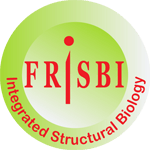FRISBI


The Glycogenomics group (B Henrissat) studies carbohydrate-active enzymes (CAZymes), the enzymes that catalyze the assembly and breakdown of glycoconjugates, oligo- and polysaccharides and has established a leadership in this domain. All CAZymes are referenced in an online database (CAZy; www.cazy.org) which has rapidly become the reference classification system for enzymes involved in the degradation and synthesis of oligo-, polysaccharides and glycoconjugates. CAZymes are often involved in immune and host-pathogen interactions, and are implicated in human diseases and in the action of phytopathogens. Because the human genome encodes only a tiny number of digestive CAZymes, we relie almost entirely on the gut microbiota for the digestion of complex carbohydrates. In addition, multiple biotechnological applications depend on these enzymes, which represent over 30% of the worldwide enzyme market. The growing interest in the utilization of renewable resources relies on these enzymes, both in biomass production by plants and its industrial conversion to fermentable sugars. The Glycogenomics group investigates the relationships between the glycobiological content of genomes (as well as transcriptomes and metagenomes) and the lifestyle of an organisms or a community of organisms.
The European Virus Archive (EVA, http://www.european-virus-archive.com) project is a globally available virus collection serving academia, public health and industry. It is a unique, networked, quality-controlled non-profit virus and viral product archive that benefits science. EVA provides wide-ranging access to virus collections held in laboratories worldwide. Laboratories in developing countries contribute to the pool of quality-controlled reagents. In this project, the virology group (B Canard) contributes to the distribution of viral cDNA and viral recombinant proteins originated from previous EU research projects.
For more information see https://www.afmb.univ-mrs.fr/en/facility/the-cazy-bioinformatics/